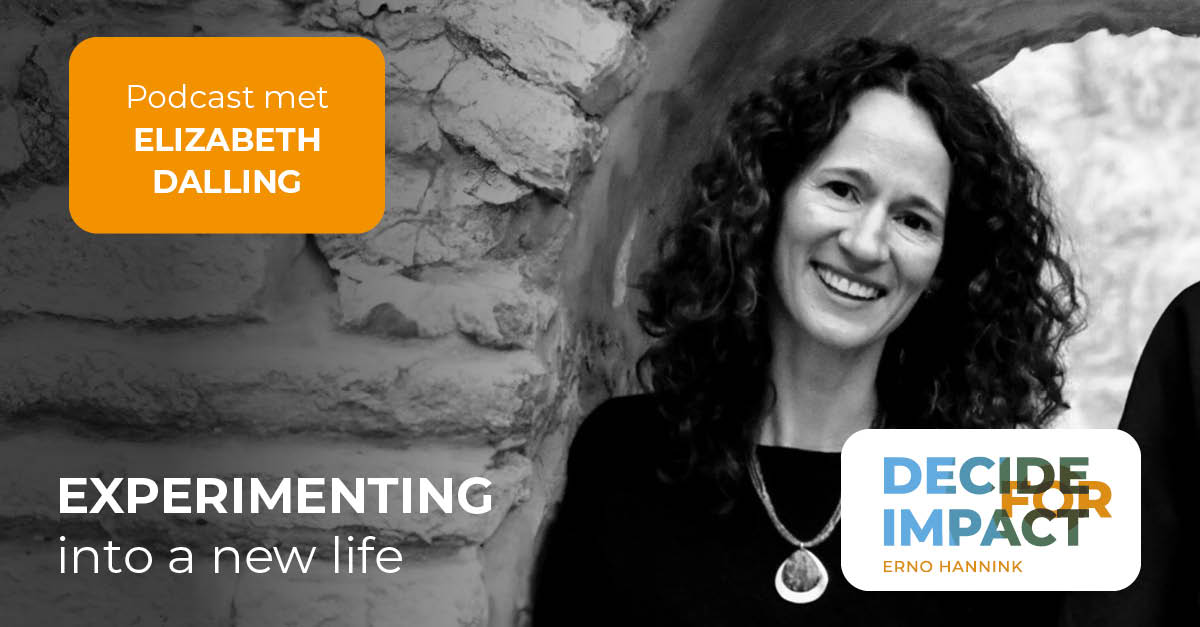Today we are learning from Elizabeth Dalling.
Elizabeth builds the creative confidence of groups, communities and organisations, so they can change their worlds for the better. Her experience in private sector, international development and education contexts in Africa, the Middle East and Europe includes facilitation of design thinking, serious play and intercultural competence, as well as evaluation research and reporting on learning and life skills initiatives with UNICEF.
Let’s get started…
In this conversation with Elizabeth, I learned:
- She began her career in primary school teaching to be able to teach across silos.
- The more emotional, creative type of teaching in primary school, tends to drop away and we go up in our heads.
- What did she learn during her career break?
- The struggle with losing the work identity.
- It is a privilege to be able to choose for a career break.
- Being able to learn during this break and have space to do her masters.
- Taking a break can be a challenge to go back, and find the confidence.
- A great period to test the beginner’s mind.
- It is really interesting to raise humans from the human development point of view.
- The number of questions we ask goes down from child to adult, we lose our curiosity.
- Increasing your creative confidence with the combination of head, heart, and hands. Keeping these three in motion.
- Keep the action going, not to reflect too much.
- We learn from getting feedback from the world.
- Keep experimenting.
- Value practical works as much as knowledge work.
- Good questions for a company empathy interview to discover if you like the job or profession.
- Take of the pressure to find the one path, and acquire experiences.
- Developing craftsmanship. De rote to mastery is followed by joy, not the other way around.
- Creativity is not efficient.
- Scaffolding experiences that enable people to tell stories, to find their values.
- Head, hearts, and hands.
- How to use the inner development goals in coaching.
- Critical thinking is part of the creative process.
- The coachee is the expert on the challenge.
- Creative thinking is missing under the thinking domain in the IDGs.
- She gets inspiration from : Designing your life – Bill Burnett and Dave Evans ; Flow – Mihaly Csikszentmihalyis; collaborative, improvisational and emergent – Keith Sawyer; Hobby, job and vocation – Elizabeth Gilbert; Tech and creativity, focus – Carl Newport; Importance of conversation – Sherry Turkle; Stolen focus – Johann Hari
More about Elizabeth Dalling:
Other resources:
- Inner Development Goals
- Sustainable Development Goals
- Rethink how we think about education – Maria Garcia Alvarez
- Cal Newport – don’t follow your passion
- Keith Sawyer – creativity, collaboration and learning
- Book Zig Zag: The Surprising Path to Greater Creativity by Keith Sawyer
- Live to 100: Secrets of the Blue Zones documentary on Netflix
- Book Drawdown
More conversations on education and learning (Dutch):
- Met inner development naar detech technologie – Jan Willem de Graaf
- Opleiden naar lerende, zelfsturende, competente wereldburgers – Diane Manuhuwa
- De mens opleiden om de aarde te dienen – Merel Collenteur
- Purpose-driven learning – Aldo van Duivenboden
- Drawdown #boekencast afl 49
- Flow #boekencast afl 20
Video of the conversation with Elizabeth Dalling
Watch here https://youtu.be/-q390K6hgSU

